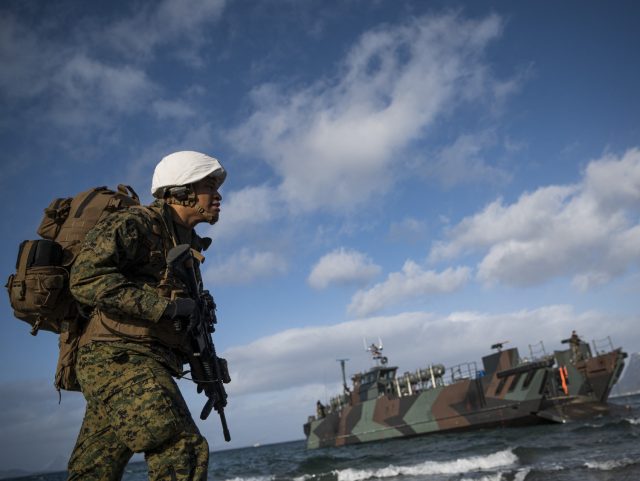The U.S. general nominated to take over European Command has told senators that Finland and Sweden’s push to join NATO may not require adding more U.S. ground forces into either country, but that military exercises and occasional American troop rotations will probably increase.
Christopher Cavoli, who currently serves as head of U.S. Army Europe and Africa, said the increased military focus will probably continue to be on eastern Europe — where nations are more worried about potential Russian aggression and any spillover of the war on Ukraine.
He said the accession of the traditionally neutral Sweden and Finland to NATO would be advantageous, not least because it would mean that “the entire [Baltic] Sea, with the exception of… a few kilometres, will be the coastline of NATO nations, which will create a very different geometry in the area” and put enormous pressure on Russia “as they sail forth from St. Petersburg and Kaliningrad.”
Praising Finland, in particular, for its historic successes against the Soviet Union in the Winter War of 1939, Cavoli boasted that Russia would likely have to spread its forces thinner once the nation has joined NATO, according to Air Force Magazine, saying the Finnish frontier had once “been an ‘economy-of-force theatre’ for [Russia] because they thought they had a relationship with Finland that allowed them to [deploy fewer troops to the border there].”
“This allowed Russia to concentrate ground forces in other places. That possibility will now go away for Russia,” he said.
Cavoli told the Senate Armed Services Committee during his nomination hearing that “The centre of gravity of NATO forces has shifted eastward.” He added that “depending on the outcome of the conflict, we may have to continue that for some time.”
Cavoli was asked about the U.S. troop presence in Europe, which has grown from fewer than 80,000 to about 102,000 since the buildup to Russia’s invasion, but claimed the increase had no ties to the more recent move by Finland and Sweden to seek NATO membership.
Indeed, the American officer stressed that the Finnish military is “large… well equipped, very well trained, very quickly [expandable], [and] exercised very frequently,” despite the country’s small population of only around five and a half million, and that Sweden, with roughly twice that population, is also an asset, not least because it brings an “unsinkable aircraft carrier” to the table in the form of the island of Gotland.
Some in the West, however, have warned that drawing Finland and Sweden into NATO may increase the chances of a catastrophic general war for exactly the reasons Cavoli wants them to join the alliance.
“Does it make sense for NATO to allow them in; are we in danger here of actually boxing Putin in as we expand and expand up to and including his borders?” questioned Brexit leader Nigel Farage recently.
“I’ve been fairly critical of NATO expansion over the years,” the Briton added, explaining that he had “always thought that it was provocative” towards President Vladimir Putin and would only help him to strengthen his domestic position by engendering “paranoia” in his people.
In any event, attempts to expand NATO into Finland and Sweden may be dead on arrival, as one of its more poorly-fitting members is opposed to it.
Turkey, led by Islamist strongman Recep Tayyip Erdogan and a NATO member somehow in good standing despite its ongoing occupation of much of Cyprus and frequent violations of Greek airspace and territorial waters, has vowed that, as things stand, it will veto Finnish and Greek accession, with Erdogan accusing the two countries of being “guesthouses for terrorist organisations”.
Negotiations to placate the Turkish regime, which complains of the Scandinavian nations providing asylum to its political opponents, imposing arms embargos on them, and being insufficiently hostile towards groups like the Kurdistan Workers’ Party (PKK), commenced on Wednesday.
The Associated Press contributed to this report.

COMMENTS
Please let us know if you're having issues with commenting.